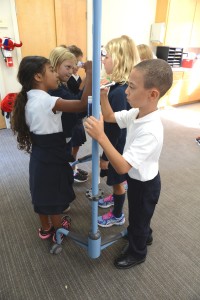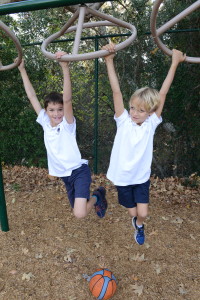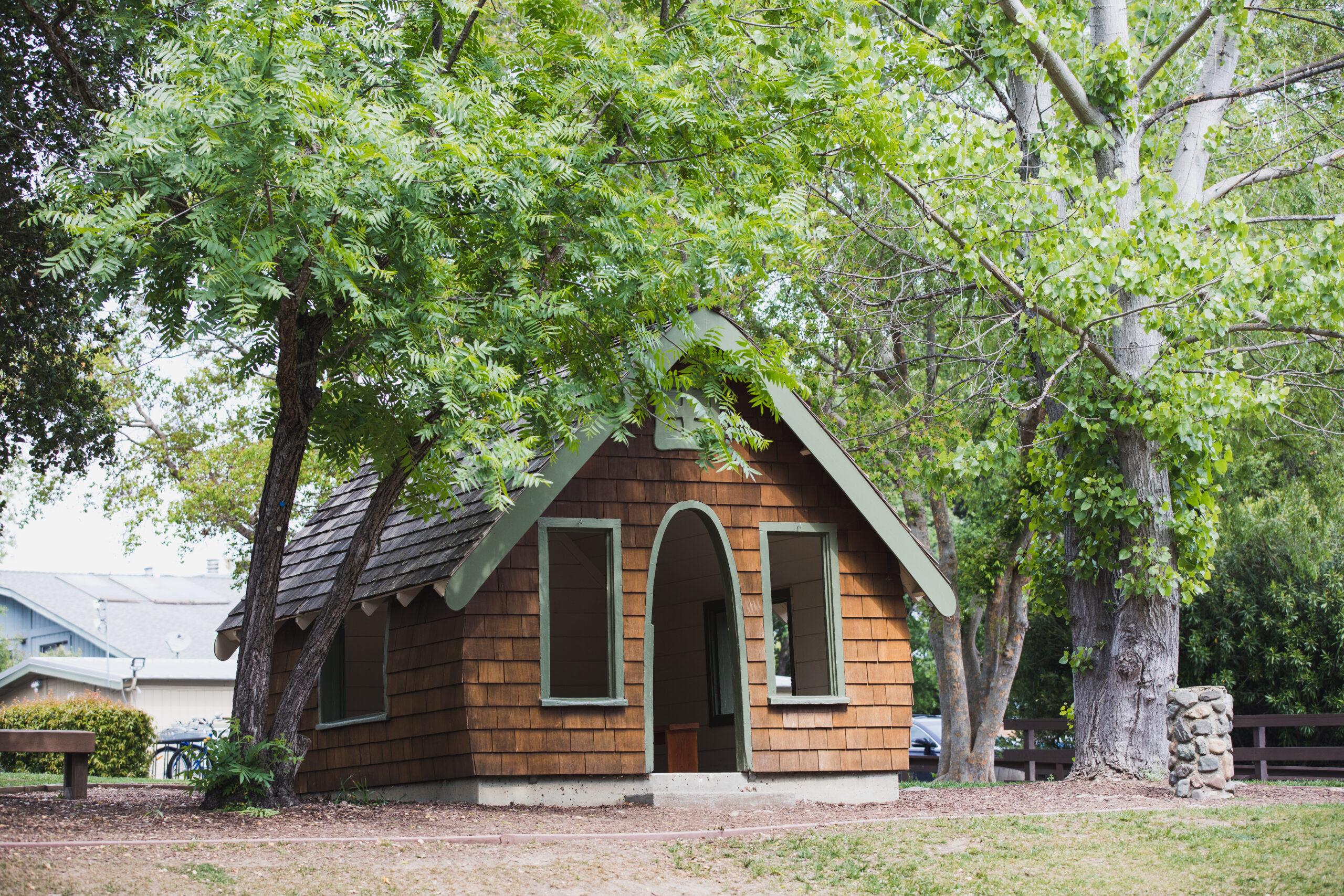Eighty years ago, a small group of women took a risk.
 They started a boarding school for wards of the state, and made what was, at the time, an audacious claim – all children, regardless of their background, placed in the right environment could reach their highest individual potential and become leaders who could change the community and the world. “As the twig is bent, the tree will grow,” they declared.
They started a boarding school for wards of the state, and made what was, at the time, an audacious claim – all children, regardless of their background, placed in the right environment could reach their highest individual potential and become leaders who could change the community and the world. “As the twig is bent, the tree will grow,” they declared.
Their vision remains as compelling today as it was back in 1935. During the ensuing 80 years, The Children’s Country School has evolved into what we now know as Hillbrook School. The school, and the world surrounding us, has changed dramatically. The orchards and farmland of Santa Clara Valley transformed into Silicon Valley, one of the most innovative places in the world. Fittingly, the spirit of risk-taking at the heart of the school remains as strong as ever.
As we prepare to embark on the 2015-16 school year – our 80th year as a school – we honor the audacity and vision of our founders by making “Take Risks” our theme for the year. One of our four core values – Be Kind, Be Curious, Take Risks, Be Your Best – Take Risks has always had a special resonance given our history and our location in the heart of Silicon Valley.
Risk-taking flourishes in a culture where children feel safe making mistakes and where failure is recognized as an essential part of the learning journey. From their earliest days at Hillbrook, children are encouraged to try new things and to push themselves out of their comfort zones. For some children that may be pushing themselves to make a new friend, while for others it is raising their hand and telling a joke at Flag. Walking up to the whiteboard to share an answer to a complex math problem or volunteering a perspective during a literature conversation are examples of intellectual risks that are daily occurrences at the school. Within our culture, the risk is tempered by the knowledge that at Hillbrook, people celebrate and learn from mistakes. In many school cultures, children are afraid to participate because the downside of a mistake or a wrong answer outweighs the benefit of a right answer. Put another way, at some schools, the need to look and act “smart” is more important than the need to learn. At Hillbrook, the focus is always on creating experiences that inspire engagement and learning.
This past week, the faculty and staff have been together preparing for the start of the school year. Like the students, as an adult community we are also continually challenging ourselves to take risks and to seek new and better ways to create an extraordinary educational experience for our students. Teachers shared new ideas gleaned from summer fellowships at places including Harvard’s Project Zero, Wildwood School’s Multicultural Institute and Thacher School’s Capstone Project summit, and worked collaboratively to envision how we create an environment that helps us meet each child where they are and challenge them to reach their highest individual potential. Conversations both formal and informal about student choice and engagement, problem solving and exploration, learning spaces, literacy and math, and inclusivity laid the foundation for what promises to be an inspiring year for children and adults.
How might you support your children in taking risks?
First, encourage your children to try new things. Whether it’s trying out for a team, running for student council, eating a food they’ve never seen, riding a bike without training wheels, or reading a new genre of book, encourage them to push outside their comfort zone. At the end of each day, replace “What did you do today?” with “What did you do today that was challenging” or “How did you take a risk?”\
Second, praise the process, more than the product. If your child runs for student council, celebrate the risk – not the result. If your child plays a sport, don’t focus on whether they immediately show signs of being the next Buster Posey or Carli Lloyd, but talk to them about what they are learning and how they are continuing to grow. In fact, particularly for children who show early signs of doing well in sports, the more you should emphasize effort and challenge, not outcomes. As we know from Carol Dweck’s work on mindsets, children who are praised for outcomes – not effort – will quickly learn to play it safe and often will limit their potential, while children who are praised for effort are more likely to develop the resilience and perseverance needed to make it through life’s varied challenges. In other words, don’t tell your child they are smart, but instead tell them how impressed you are with the way they solved a problem or the hard work they showed to get better. Don’t tell them they are a great athlete, tell them how impressed you are with their tireless effort on the field or the way they quickly bounce back when they make a mistake.
signs of being the next Buster Posey or Carli Lloyd, but talk to them about what they are learning and how they are continuing to grow. In fact, particularly for children who show early signs of doing well in sports, the more you should emphasize effort and challenge, not outcomes. As we know from Carol Dweck’s work on mindsets, children who are praised for outcomes – not effort – will quickly learn to play it safe and often will limit their potential, while children who are praised for effort are more likely to develop the resilience and perseverance needed to make it through life’s varied challenges. In other words, don’t tell your child they are smart, but instead tell them how impressed you are with the way they solved a problem or the hard work they showed to get better. Don’t tell them they are a great athlete, tell them how impressed you are with their tireless effort on the field or the way they quickly bounce back when they make a mistake.
Remember that childhood – and life – is a marathon, not a sprint. Success or failure at 7..or 8….or 12…. does not translate into success or failure at 30…..or 35…..or 70. Childhood is a time of extraordinary growth and change, and children will often master things in fits and starts. Remember watching your child learn to walk? or talk? Think of those early developmental processes as you watch your child taking on new and different challenges. Remember the patience it required – and the joy it eventually brought – and try to keep that same perspective as they tackle increasingly challenging and complex learning experiences.
Finally, remember that as much as you can support and nurture and love them through the learning process – you can’t do it for them. As a parent, one of the risks we must take is to gradually release responsibility and let our children make their way on their own. It takes courage and we will make mistakes along the way, and yet the greatest joy that we will ultimately find is being part of our children’s journey as they grow into confident, articulate, successful, and independent adults.
Next Wednesday, we will gather as a community at the pavers for the opening Flag of the year. It is one of my favorite moments of the year, a moment of possibility and promise, as a community of students, faculty, and parents turn their eyes toward stage and eagerly await the official start to the year. It will be a year in which we challenge ourselves – children and adults – to take risks, secure in the knowledge that there will be twists, turns and bumps along the way, but that our founders had it right – as the twig is bent, the tree will grow.
